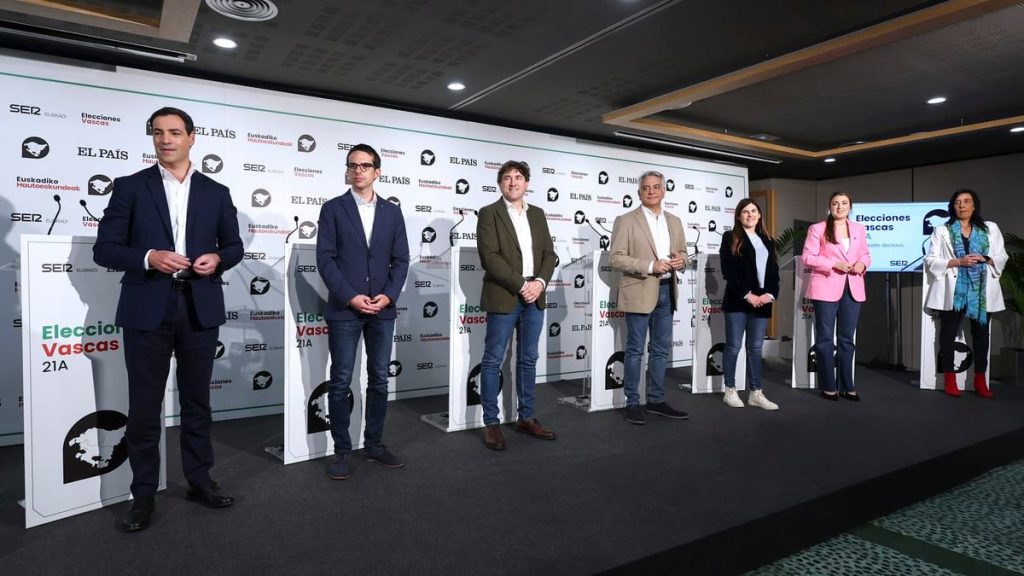Candidates have arrived with just enough strength on the last day of the campaign, two days before the closely contested Basque elections, which has required political parties to make a clear effort, more than in previous occasions, to clearly define the profiles of their candidates for lehendakari. The last debate, organized on Friday afternoon by the SER and EL PAÍS, proceeded without major controversies or serious accusations. The candidates – Imanol Pradales (PNV), Pello Otxandiano (EH Bildu), Eneko Andueza (PSE-EE), Javier de Andrés (PP), Miren Gorrotxategi (Podemos), Alba García (Sumar), and Amaia Martínez (Vox) – discussed models and proposals for the future of the Basque Country. The discussion largely focused on attacks on the PNV for the state of public healthcare and on the PSE-EE for the high cost of rental housing, as well as criticism of EH Bildu’s police model and debates on the evolution of the Basque economy.
ETA was largely absent from the discussion. Candidates refrained from revealing their cards regarding potential alliances to ensure governance in Euskadi beyond the announced vetoes against the independentist left by right-wing parties and the PSE-EE. Pradales sought to present an image of solidity and willingness to collaborate to solve major issues in the country, such as Osakidetza (Basque health service), public safety, and economic and industrial future. Otxandiano, on the other hand, called for breaking the cycle of decline in recent years. Andueza indicated that PSE-EE, wanting to avoid adventures, aims to maintain progressive policies and good management.
Healthcare received significant attention during the debate, with candidates discussing the situation of Osakidetza and offering different perspectives on how to address its challenges. EH Bildu emphasized the need for changes in the industrial model to ensure a sustainable future, contrasting with the PNV’s perspective. The economy of the Basque Country and Spain was also touched upon, highlighting the importance of strong social policies to complement economic success. Various candidates raised concerns about housing issues and the decreasing purchasing power of Basque citizens.
Candidates expressed differing views on security and police models, particularly EH Bildu’s proposal to “demilitarize” the Ertzaintza and adopt a system similar to that in the UK and Nordic countries. Vox linked increasing insecurity and crimes to illegal immigration, while Sumar and Bildu criticized specific actions of the Ertzaintza. While no party openly extended a hand to their opponents for alliances, some hints were made towards potential collaboration. The PP criticized the PNV directly, questioning their potential support for EH Bildu. Pradales did not clarify the PSE-EE’s stance towards the left-wing nationalist party, signaling that they have an obligation to the Basque society. Podemos prioritized a left-wing government, Sumar ruled out a pact with the PNV, and Vox stated they would never support a lehendakari candidate from EH Bildu or the PNV if they entered the Parliament.
Overall, the last debate before the Basque elections highlighted the key issues facing the region, including healthcare, economy, security, and possible political alliances among the different parties. As the candidates made their final pitches to voters, offering contrasting visions for the future of Euskadi, the outcome of the elections remained uncertain, with the closeness of the race adding to the significance of each candidate’s message and strategy in the campaign.


